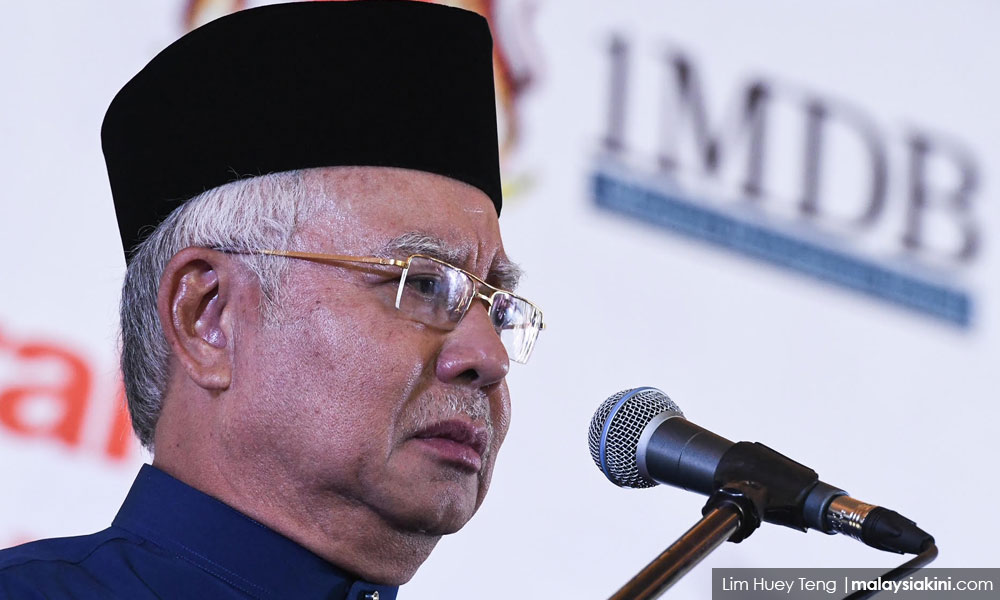The ongoing debate on the future of government-linked companies (GLCs) and their management is complex and multifaceted. These articles contributing to this discussion are based on the third Tun Hussein Onn Chair lecture delivered by Jomo KS, now a member of the Council of Eminent Persons.
COMMENT | In their book "Minister of Finance Incorporated: Ownership and Control of Corporate Malaysia", Professor Edmund Terence Gomez’s team of researchers chart developments involving government-linked companies (GLCs) over the last three decades. The 1997-1998 crisis exposed the vulnerability of the corporate expansion following privatisation and corporatisation closely associated with the Umno leadership then.
The corporate restructuring and refinancing institutions and processes that followed the 1997-1998 financial crisis were not simply bailouts at the public expense. Instead, before the May 9, 2018 election, most major assets were under professional management, ultimately controlled by the former prime minister cum finance minister.
The book focuses on seven government-linked investment companies (GLICs), namely Khazanah Nasional and Permodalan Nasional (PNB), both of which are under MoF Inc; and Kumpulan Wang Simpanan Pekerja (EPF), Kumpulan Wang Persaraan (KWAP), Lembaga Tabung Angkatan Tentera (LTAT) and Lembaga Tabung Haji. Significantly, the seven do not include the notorious 1Malaysia Development Berhad (1MDB), initiated by then prime minister Najib Abdul Razak (photo).

Of the seven, only Tabung Haji was run by a politician, with the others managed by professionals although the integrity of some may also be in doubt. After all, many other much-abused GLCs have also been run by professionals - like US President Donald J Trump, Jho Low is a graduate of the University of Pennsylvania’s Wharton School of Finance.
Most bumiputera entrepreneurs who emerged in the dozen years or so before the 1997-1998 crisis also had impressive professional credentials. The apparently better performance of the more recent crop of professional managers may have less to do with their qualifications, than the ethos, checks and balances of the new institutional arrangements introduced and enforced by Khazanah and some other GLICs.
The range of activities undertaken by GLCs, overseen by the GLICs, include familiar ones from the 1980s, such as utilities, finance, plantations, property and construction. Most major financial institutions are now under the GLICs. Media, previously controlled by parties in the ruling coalition and their trustees, are now held by GLCs, while investments in hospitals and other services have also grown. Many things have changed, with the book tracing the bewildering variety of new arrangements.
Gomez’s more recent work suggests that many GLCs set up for bumiputera economic empowerment purposes have been more likely to be greatly abused. In contrast, many of those intended to advance Malaysia’s technology frontier have been less abused, and in some cases, have actually served to accelerate national economic development.
Protracted crisis
Two economic developments in recent years have changed the context for GLICs and GLCs. First, the Saudi-initiated oil price collapse in late 2014 precipitated a more general commodity price collapse. More recent price recovery has not reversed the lacklustre growth in Malaysia since 1998. This has been exacerbated by premature de-industrialisation "sold" to Malaysians as bringing us closer to achieving developed nation status.

Second, despite heavy censorship, Malaysians are somewhat aware of the corporate abuses involving other GLCs including 1MDB, Felda Global Ventures (FGV) and other corporations. Easy money from China may have helped the Najib regime with its immediate financing problems, but a generation familiar with mounting personal debt has intuitively sensed that this has been at the expense of the public, taxpayers and future generations.
This "double whammy" has been reflected in the weakened ringgit and by other indicators.
Meanwhile, there have been heightened concerns about the recent foreign investor resurgence, especially with official non-disclosure of ownership data since 2008. Erosion of public faith in the state and the ruling coalition since the mid-1950s has been accelerated by unprecedented recent allegations of abuses for personal gain and nepotism.
Of the not-so-magnificent seven, it is clear that Khazanah and the EPF have actually made more of their earnings abroad, contrary to the widespread presumption that their earnings are due to the advantages they enjoy due to their government links in Malaysia.
While Malaysians are understandably outraged by the generous remuneration enjoyed by most working at senior levels in these GLCs, it would have been impossible to secure the considerable talent responsible for these high rates of return without remuneration benchmarked against international practices.
While the old regime was undoubtedly associated with abuses, simplistically insisting on government withdrawal from the economy and on leaving things to the market as a universal panacea to the myriad problems the nation faces will only open up the economy to new abuses. In the face of the wide-ranging and complex issues involved, this would be tantamount to throwing the baby out with the bathwater.
And as the new Malaysia gets its act together, it is important to avoid a debilitating and demoralising witch-hunt victimising honest professionals who felt compelled to make minimal compromises in order to get on with their professional work.
After all, the Americans learnt, at great cost to the world, that their thorough purge of all associated with Saddam Hussein’s undoubtedly oppressive Baathist regime only drove some of the aggrieved to regroup as Da’esh, better known in the West as Isis or Isil.
Part 1: Privatisation of state-owned enterprises - how it began and spread
Part 2: Is privatisation of Malaysian SOEs good or bad?
Part 3: Has privatisation benefitted the public and consumers?
Part 4: Privatisation: Is the solution worse than the problem?
Part 6: Public-private partnerships – the recent fad of PPPs
JOMO KS was economics professor and Assistant Secretary-General for Economic Development at the United Nations. He held the chair at the Institute for Strategic and International Studies (ISIS) Malaysia in 2016-17.
The views expressed here are those of the author/contributor and do not necessarily represent the views of Malaysiakini.

